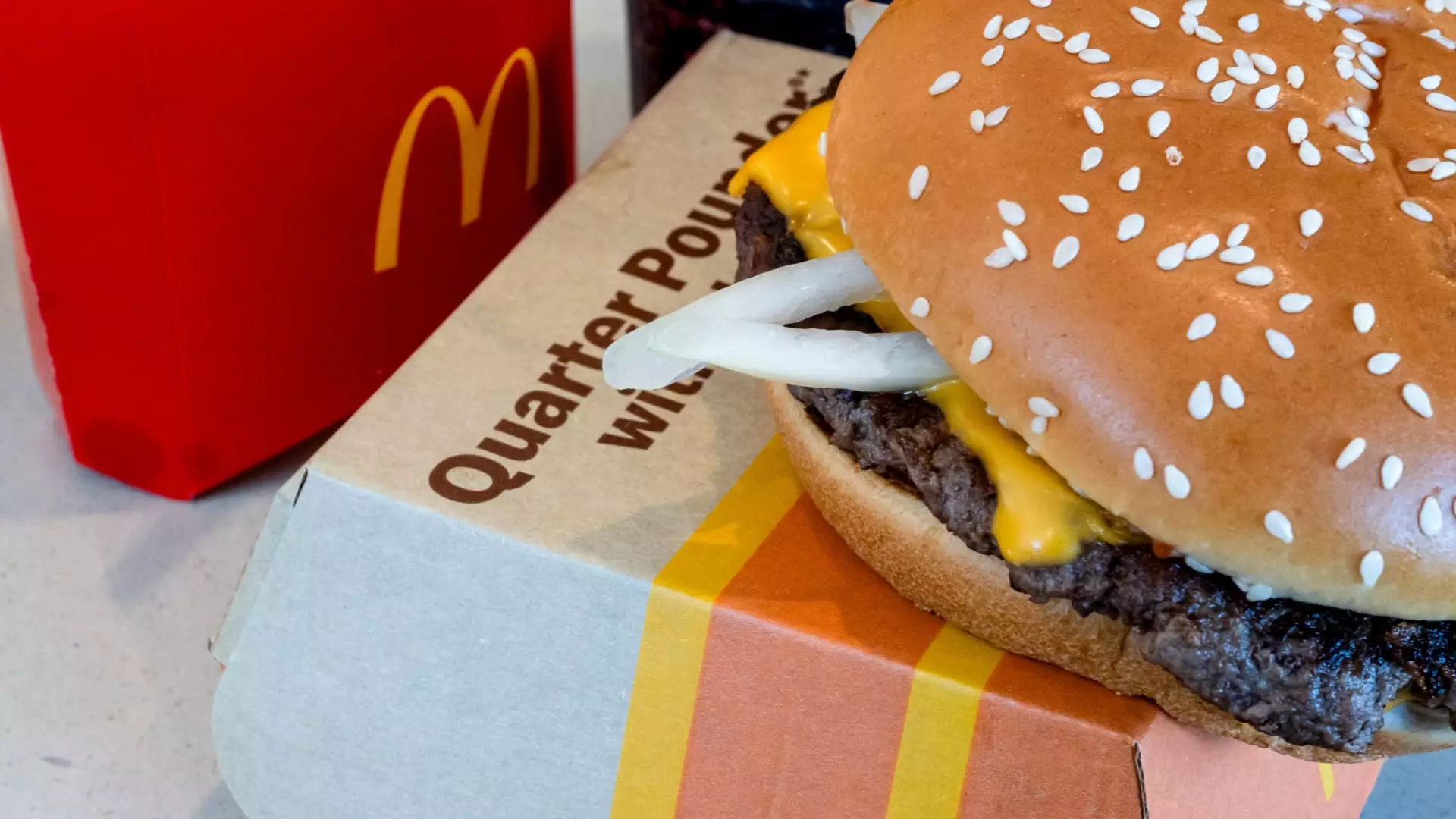The recent outbreak of E. coli linked to McDonald’s Quarter Pounders has erupted into a significant public health concern. The Centers for Disease Control and Prevention (CDC) reported that the outbreak has affected 75 individuals across 13 states, leading to 22 hospitalizations and one confirmed death. This emerging health crisis raises alarm regarding food safety practices, the resilience of the fast-food giant’s brand, and the ramifications for consumers and investors alike.
With confirmed cases spanning from ages 13 to 88, the demographic impacted by this outbreak is diverse. The CDC has emphasized that the official statistics likely underestimate the true scale of the infection, as many individuals may recover without seeking medical attention or getting tested for E. coli, complicating the tracking of this outbreak. The unique nature of this bacterial infection lies in its capacity to cause severe complications, such as hemolytic uremic syndrome, which can lead to kidney failure in affected individuals. The CDC’s transparency in sharing case counts and hospitalizations is pivotal, fostering an understanding of the outbreak’s seriousness and the need for vigilant health monitoring.
Health officials are primarily investigating the slivered onions used in the Quarter Pounder as a potential source of contamination. Following the CDC’s announcement, McDonald’s swiftly responded by halting the distribution of slivered onions in affected regions and removing them from their restaurants in Colorado, Kansas, Utah, Wyoming, and several other states. The connection to Taylor Farms, a California-based produce supplier, further complicated the situation when the company issued a recall on four raw onion products due to probable E. coli contamination. These actions raise significant questions about quality control measures throughout the supply chain and the extent to which corporations are prepared for foodborne illness outbreaks.
However, the investigations have expanded to consider the beef patties also used in the Quarter Pounder, suggesting that the source of the contamination may not be limited to the onions. Public health agencies are methodically tracing cases while aiming to contain the outbreak, indicating a systemic response to a crisis that poses risk beyond individual cases. It highlights the importance of comprehensive food safety in preventing similar incidents, emphasizing a multifaceted approach to protect the health of consumers.
McDonald’s reputation relies heavily on its extensive menu offerings and brand trust, which are now under scrutiny. Following the CDC’s announcement, the restaurant chain’s shares took a noticeable hit, dropping by 2%, and indicating investor anxiety regarding potential long-lasting reputational damage and decreased patronage. Although the company has removed affected items, it’s essential for McDonald’s to reassure customers that their products remain safe to consume.
Experts indicate that unless the outbreak escalates into a more significant issue, the impact on McDonald’s brand could be mild, reminiscent of a similar E. coli incident involving Wendy’s two years prior. Nevertheless, the company’s cautious approach, including pausing the sales of specific menu items, reflects an understanding of consumer psychology; public trust can be fragile following food safety scares.
This incident not only affects McDonald’s but also resonates throughout the fast-food industry, as evidenced by other chains such as Burger King, Pizza Hut, KFC, and Taco Bell removing onions from their menus in select locations. Such collective action illustrates the interconnected nature of food safety, where one outbreak can have broader implications for multiple companies, increasing awareness around food sourcing and preparation across the sector.
Moreover, this outbreak emerges at a precarious time for McDonald’s, as the company navigates sluggish sales amid changing consumer behaviors. With price-sensitive consumers less inclined to frequent fast-food establishments, McDonald’s has turned to value meals to stimulate interest and growth in sales. With impending quarterly earnings reports, investors will likely be closely monitoring the repercussions of this outbreak on the company’s performance and consumer sentiment moving forward.
In light of this outbreak, it becomes critical for McDonald’s and the fast-food industry to recommit to stringent food safety standards and transparent communications. While the company manages immediate fallout, the long-term goal must be the restoration of public confidence in their offerings. Regular audits, crisis management training, and enhanced supply chain transparency can assist in maintaining food safety at high standards, preventing recurrences of such outbreaks.
As the CDC continues its investigations, both the company and consumers must remain vigilant. The path to recovery involves not only addressing the current crisis but also fortifying the food system against similar threats in the future. Ensuring the safety of food should remain of paramount importance as it has the power to significantly influence health, consumer trust, and corporate stability in the fast-food industry.

